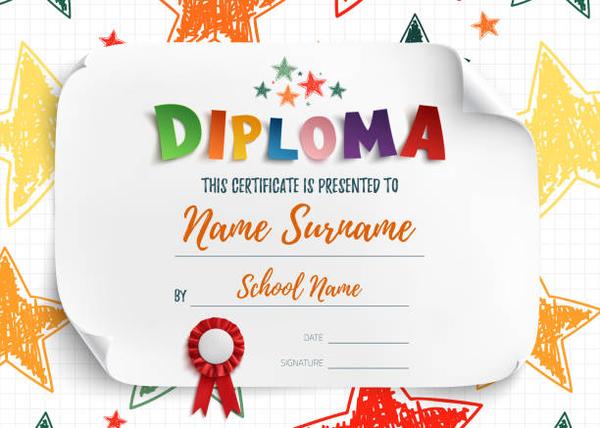When working across disciplines, it’s easy to forget the differences between the disciplines. My doctoral research suggests that this could lead to fake collaboration’.
Fake degrees are a problem that affects individuals and companies worldwide. The problem can be tackled by institutions through the introduction of strict verification procedures as well as by improving the security features of academic certificates.
International Cooperation Against Fake Degrees
Diploma mills as well as fake degree businesses are global in nature therefore international collaboration is required to tackle this issue. There are several initiatives to ensure that qualifications are transferable across borders and to help in the fight against fake diplomas. These include the Lisbon Recognition Convention which has been adopted by several GCC states as well as an initiative by the QAA to criminalise essay mills.
It is essential to ensure that students have access to and easy use of verification services. So, potential students can be assured that their qualifications are verified at the point of application. It will stop individuals from purchasing fake credentials or committing fraud.
It is also important to create strategies to educate people about the dangers of fake degrees. Public awareness campaigns can be helpful in encouraging students and institutions of higher learning to get the right instruction.
Some individuals who purchase bogus credentials may be able to claim damages against their employer. Employers should be able to identify those who have obtained fraudulent credentials.
The first step is to ensure that the university’s academic fraud policy and procedures are clearly defined and implemented, as well as transparent to all staff members including the admissions department and the office of the registrar. All staff members should be taught to recognize fake credentials.
Diploma Mills and fake degrees
Students who purchase fake diplomas may get them from diploma mills. It is difficult to track them because they are often obscure and operate on numerous websites. It is estimated that they are one billion dollars in business.
These scams lure unwary students with the promise of the fastest and easiest route to a high-paying job. They usually offer degrees in areas that are esoteric like astrology or naturopathy which makes it difficult to verify the competence of the person. If they have any academic requirements in any way, they are also reducing their requirements.
The business, which offers degrees, is driven by a desire to achieve status. This is especially applicable to higher education, where students and institutions are seeking status by getting the highest quality qualifications they can afford.
The struggle to keep status can be a thorny one, especially if students face steep tuition fees and financial difficulties. There is a way to stop fake degrees from harming students. Through the implementation of the strategies discussed in this article colleges as well as credential evaluation services and employers can work together to stop diploma mills. This is a noble cause that could have real-world impacts on people’s lives.
Blockchain Technology for Credential Verification
Blockchain technology has the potential to speed up the process of confirming credentials and make it more transparent and accessible to everyone. Immutability and decentralization are among its primary attributes. It also has the benefit of interoperability. This means that verification takes place between the parties who require it. In this way the system removes intermediaries and reduces fraud risks and expenses.
This means that employers and institutions of higher education will benefit from faster verifiable, reliable verification procedures. Students will also be able check their diplomas more certainty. Actually, the ed-tech firm Modern Campus has already partnered with French blockchain software developer BCdiploma to offer students an online tool for keeping and sharing their diplomas.
The blockchain stores the cryptographic hash the diploma after it has been digitalized. The hash functions as a digital signature, that guarantees that the authenticity of the degree. Verifiers compare the hash of the diploma to the one that is on the blockchain.
One of the major advantages of blockchain is its non-tamper-proof nature. This is due to the fact that information that is stored in a blockchain is logged and stored using multiple copies distributed throughout the network. Furthermore blockchain networks are able to offer financial incentives to ensure that the system is reliable and secure mining companies earning rewards for contributing their computing power to the. Therefore, any attempt to tamper on a block within the chain will be detected and is rejected by the system.
Global Standards for Degree Verification
Diploma fraud is a worldwide issue that can take many forms. It could be as simple as the simple act of a person falsifying their academic credentials to massive document forgery, or even fake diploma mills. It’s a major issue that can have a wide range of implications for society. Fake degrees have grave implications including wrongful hirings and unintentional access to jobs that are regulated (such as healthcare and engineering).
Educational verification services are among the best ways to combat such a issue. This is an identity check that confirms the education level of the applicant. The procedure involves contacting the institution of higher learning and asking for proof of attendance or degree conferral. The information then is verified against the institution’s database to verify if the information is valid.
This is an effective way to prevent fraudulent claims. But it’s not 100% reliable. The reason is that some institutions will only provide transcripts to students which makes it difficult to verify their credentials. But a third-party company who specializes in this kind of screening could help identify red flags like unaccredited universities and suspicious grades. It can also help to issue a verification certificate that is recognized by employers as well as other institutions. This is especially important in industries that are dependent on technical skills, such as manufacturing.




